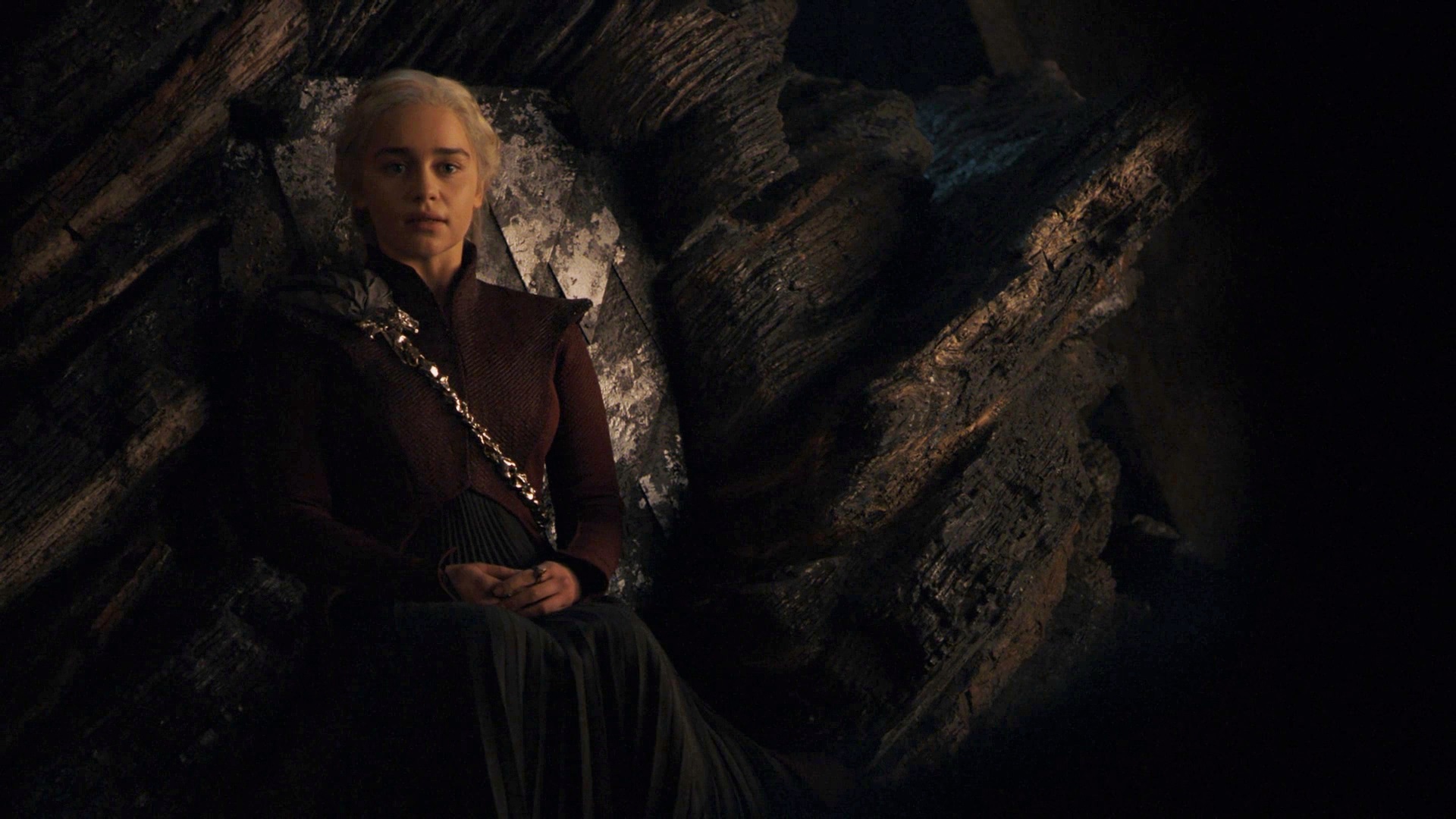
In the fictional history of Game of Thrones, King’s Landing has seen some rough times. During Robert’s Rebellion, the dynasty-breaking conflict that sowed seeds of the now-blooming discord, the capital city of the Targaryens was sacked by the troops of Tywin Lannister. Tywin had come to King’s Landing as a promised ally to King Aerys II and once in the walls, treacherously began to put the city to the torch and sword. During the War of the Five Kings, Stannis Baratheon threatened to bring similar bloodshed and violence into the city, as he pressed his claim against the illegitimate king Joffrey Baratheon. King’s Landing was spared that sacking by the timely arrival of Tywin Lannister and his allies- this time the rescuer and not the reaver.
In the recent episode “The Bells,” King’s Landing fared far worse than during The War of the Five Kings or Robert’s Rebellion. After the precise destruction of the city’s scorpion-artillery and the annihilation of Queen Cersei’s expensive sellsword armed forces, the Lannister soldiers within the walls threw down their swords in the face of northern and Unsullied infantry and Dothraki cavalry. And a dragon. Daenerys Targaryen chose to not honor the surrender of the city. And began to burn the capital.
The question at hand is why. Why not accept victory, rather than bring death to thousands of civilians?
One possible answer seems to be rooted in the madness of the Targaryens. Daenerys’s father was known as the Mad King, and had a history of at least planning city-wide destruction. That Dany, after betrayals and defiance by Cersei and the loss of her close associates, had reached some breaking point that broke during the battle.
This answer seems unsatisfying at best. Targaryen madness has certainly been talked about in the context of the show, and while Dany has taken extreme actions in the past, her seemingly embracing a consuming bloodlust to destroy seems unsupported.
Unless that’s not what happened. Daenerys might have been driven to attack the citizenry not from some emergent madness, but as a choice to achieve her goals.
It’s beyond the scope of this article to talk about madness; what it is, what it isn’t. Daenerys burning thousands of people isn’t something sane. It’s an atrocity. Much like Tywin’s sacking of King’s Landing was an atrocity, and if Stannis had gotten inside the city, the atrocity that could have happened.
Both Tywin and Stannis were rational, ruthless men. Their actions were not driven by madness, but by their ambition. Stannis desired the Throne; Tywin desired to maintain his power by committing to the victorious rebels at the very end of the rebellion.
That is the mindset that Daenerys might possess. And the show has set up supporting moments for that model of behavior from Dany more than the simple explanation that she has slipped into a murderous mania.
SEASON SEVEN – SHALL WE BEGIN
Although proponents of the Mad Queen explanation can find instances to support Dany’s perceived predisposition for madness throughout the series, going back to season one and Viserys’s erratic behavior, followed by Dany threatening to burn cities if she didn’t get her way in season two, and onwards as Daenerys dealt with increasingly difficult challenges, it’s only necessary to start early in season seven and see the groundwork for Dany making a “rational” choice to commit war crimes.
Yara Greyjoy: If you want the Iron Throne, take it. We have an army, a fleet, and three dragons. We should hit King’s Landing hard, now. With everything we’ve got. The city will fall within a day.
Tyrion: If we turn the dragons loose, tens of thousands will die in the firestorms.
Ellaria Sand: It’s called war. If you don’t have the stomach for it, scurry back into hiding.
After a brief digression involving Myrcella’s death and there not being any innocent Lannisters…
Daenerys: I am not here to be queen of the ashes.
Olenna Tyrell: That’s very nice to hear. Of course I can’t remember a queen who was better loved than my granddaughter. The common people loved her. The nobles loved her. And what is left of her now? Ashes. Commoners, nobles; they’re just children really. They won’t obey you unless they fear you.
A plan to lay siege (but not assault) King’s Landing was laid out, to isolate Cersei and to capture Casterly Rock, to symbolically cut Cersei off from her House’s traditional seat of power. Once that was settled, Daenerys wished to reassure Olenna of their mutual goals.
Daenerys: I realize you are here out of hatred for Cersei, not love for me, but I swear to you: she will pay for what she has done. And we will bring peace back to Westeros.
Olenna: Peace? Do you think that’s what we had under your father? Or his father? Or his? Peace never lasts, my dear. Will you take a bit of advice from an old woman? He’s a clever man, your Hand. I’ve known a great many clever men. I’ve outlived them all. You know why? I ignore them. The lords of Westeros are sheep – are you a sheep? No. You’re a dragon. Be a dragon.
Love versus Fear is an element that reoccurs in “The Bells”, bringing the conversation with Olenna back into consideration.
QUEEN OF THE SEVEN KINGDOMS
It’s important to recognize that Daenerys has ambition. When she met Tyrion, she made it clear that she wanted to sit the Iron Throne. Upon arriving at Dragonstone and meeting with King in the North Jon Snow, she asserted that she intended to be Queen of the Seven Kingdoms, with an emphasis on the North being one of those kingdoms.
On coming to the North to fight the threat of the White Walkers, who threatened all of the Seven Kingdoms – her perceived birthright – she encountered friction from Lady of Winterfell Sansa Stark, and the unresolved question of what arrangement would be made after the White Walkers were defeated. Now that the North had seceded, the northern lords were not content to bend the knee again to a southern ruler.
Daenerys has stated motivations other than simply ruling the Seven Kingdoms. She’s proud of freeing slaves in Essos (there are no slaves in Westeros for her to free) and she seemed to criticize the political system of Westeros in which she was currently out of favor. Although it’s possible that Daenerys entertained some idea of political reform, it seems clear with her focus on taking the Throne that any reforms would be initiated from the top, with her being able to control the process.
There was a problem with her plan to achieve her dream of being Queen of the Seven Kingdoms. The lords of Westeros, except for allies who had specific grudges with the Lannister regime, were not receptive to restoring the Targaryen dynasty to power with foreign-raised, foreign-supported Dany as candidate. Randyll Tarly would rather burn alive than yield to Daenerys, preferring Cersei Lannister: the devil he knew versus the devil he didn’t know.
On choosing to head North and fight the White Walkers (and contend with Sansa) Daenerys found the northmen somewhat unwelcoming, despite her joining forces in their mutual defense. After the battle, she noticed that Jon was getting attention and credit. Tormund the Wildling was happy to toast her, but he was invested in bragging about Jon, highlighting things that Jon had done (which also applied to the under-heralded Dany.)
Which brings up the second problem with her dream of becoming Queen of Westeros. Jon Snow had the better claim.
Daenerys begged Jon not to tell anyone about his being the legitimate son of Rhaegar Targaryen. Because she would lose her legitimacy. The lords of Westeros might be sheep, but they would prefer Jon as their shepherd over Dany.
It doesn’t matter if that was true or not (it does matter and it is true) – it matters that Daenerys believed it to be true. Jon’s true birth was a threat to her ambition, and she was invested in keeping that threat minimized.
IT’S NOT A SECRET – IT’S INFORMATION
If Varys did succeed in sending any ravens from Dragonstone reporting on the details of Rhaegar and Lyanna’s marriage and offspring, presumably to influential Houses that could spread the information, he may have killed Dany’s hopes to keep Jon’s superior claim a secret. As surely as Gregor Clegane killed Missandei.
With the northern host having marched into the Crownlands to join with Dany’s Unsullied and Dothraki, Daenerys had to consider the possibility of two battles. First, the military battle against Cersei – against her Iron Fleet and sellsword army. And should her coalition prevail, she’d have to consider the possibility of a political battle, if the lords of the land opted to choose between Aegon Targaryen’s solid claim, or her own.
In the history of Great Councils, where the claimants were ostensibly bound to the decision offered by lordly debate, males of lesser claims came out on top. Jon does not have the lesser claim.
Tyrion and Varys had already discussed a possible solution (before Varys decided to go all-in on telephone-tag treason and get roasted.) Tyrion suggested that Jon and Daenerys marry, which would solve the problem of competing claims, and the situation would go from being a potential civil war to a domestic dispute.
Varys didn’t seem keen on the idea, but Varys’s opinion was less important than Jon and Dany’s. Dany seemed game to continue a romantic relationship with Jon, but Jon was not.
It was never expressed explicitly by Jon, but he clearly was reluctant to have sex with his aunt. No amount of fan assertions that Ned Stark’s parents were cousins, or that Tywin Lannister married his cousin Joanna matter. Cousins marrying isn’t the same as an aunt and nephew marrying, and it matters what Jon Snow thinks about it. He’s just not into it, auntie.
So, without a clear pathway to marriage to bring her into the halls of power directly, Daenerys was looking to have her claim set aside. Even if Jon refused any offered crown, her claim would be considered illegitimate. Unless she had support. Unless they loved her.
Daenerys: Far more people in Westeros love you than love me. I don’t have love here. I only have fear.
Jon: I love you. You will always be my queen.
Daenerys: Is that all I am to you? Your queen?
Jon:
Daenerys: Alright then. Let it be fear.
ASK NOT FOR WHOM THE BELLS TOLL. IT TOLLS FOR THEE
Daenerys had her battle plan set. She’d destroy the Iron Fleet, sweep the defenses on the Walls and open a breach for the coalition army (and rout the Golden Company and their lack of elephants.)
Tyrion hammered home that the city might turn away from Cersei and surrender. That the citizens would ring bells to signal their capitulation. Daenerys knew those details, but did not seem too invested in them. She agreed to Tyrion’s plan only reluctantly, after making it clear her preferred method of attack involved fire and blood.
As plans go, ones that are articulated usually go awry. But the Stark/Targaryen assault worked like a charm. And to Tyrion’s relief, the city surrendered. The bells rang and rang.
And for some long seconds, that seemed to be that. The day was won. A tremendous victory. And then it began to rain fire. And the victory became an atrocity.
Why?
As said before, Dany might have snapped, or went mad, or some other simple and uninteresting explanation. Or, the slaughter of innocents and commission of an unfathomable record-breaking atrocity served her ambitious goals.
The city surrendering would certainly get her revenge on Cersei, but it would not get Daenerys the Iron Throne. Not when heroic Aegon Targaryen had captured the city from the grip of the sept-bombing Queen Cersei. Jon Snow would be credited with this victory when the lords conspired against her to insure that their preferred claimant got the throne. The heroic Rhaegar’s son would be honored, instead of the Mad King’s daughter.
Marillion: My lord of Lannister! Might I entertain you while you eat? I can sing of the Lost Son of Rhaegar’s victory at King’s Landing.
Tyrion Lannister: Have a care. I might provide some fact-checking notes.
She did not have their love. She likely would not get their love. She could only have their fear. And so she embraced fear entirely.
STANNIS AND RENLY
In the second season of Game of Thrones, two Baratheon brothers were in competition for which one of them would be able to take King’s Landing, depose Joffrey, and be recognized as ruler of the Seven Kingdoms, King of the Andals and the First Men. Stannis was older than Renly and therefore should succeed the dead Robert by the usual rules of succession.
Renly did not come with a legal document supporting his bogus claim to a crown. He came instead with most of the Stormlands armies and with the chivalry of the Reach. The powerful Tyrell family had decided to play kingmaker and make a king out of Renly.
Stannis had the better claim, but Renly had the larger army.
To make up for her inferior claim, Daenerys would have to rely on a similar framing.
Jon/Aegon has the better claim, but Daenerys has the Only Dragon.
And when Cersei loses King’s Landing, it wouldn’t be to Jon and the ground troops claiming a victory. It would a dragon bringing ruin that men would remember for generations.
When the builders of the Wall made that massive structure, they made it so large that even when the memories of men passed they’d still understand its purpose. That big wall of ice was built to keep something out.
And after the destruction Dany deliberately wrought on King’s Landing, just like the melted towers at Harrenhal reminded people for generations, people would remember to fear dragons.
Did Daenerys go into battle with full awareness that she was going to destroy King’s Landing? Was it something she chose to do, entirely in the moments that the bells tolled? Was she weighing her options when Tyrion was explaining the bell-ringing surrender option? Since we’re not privy to Daenerys’s thoughts (before anyone brings up what Benioff and Weiss say, Death of the Author is my go-to response,) we can speculate, but unless Dany explicity talks about her thought process in the finale, we won’t know. And I don’t think it even matters. Certainly not to the dead of King’s Landing. Or the horrified living.
AND DANY MAKES THREE
Could Dany have not done this? Of course. She was not mentally well, obviously, but it’s not like she was mad, in the literal sense of the word. (If in next Sunday’s episode Daenerys is suddenly a cackling “psychotic” villain, that will refute this entire feature, but somehow I don’t think that’ll be the case.)
She could have accepted the surrender of the city; she could have just targeted the Red Keep to kill Cersei. Both could then be credited as massive victories to the heroic son of Rhaegar and his pretty aunt, the one the dragon carries around.
She could have killed less fewer people in Drogon’s extended strafing of the city to prove her point, but when you’ve killed five thousand people, does it matter if you kill five thousand more? (Well, it does matter, depending.) It’s all bad. But if Dany’s goal is to really make a mark, to create an atrocity of legend so that it would be toxic to consider this a victory, then more death and destruction is the way to go as insurance.
None of this is good for Daenerys as a person. It’s understandable that people who have named their children Daenerys because they’ve been enchanted by the story of the little blond girl and her dragons, just trying to come home and be a queen, would be upset. People who have gotten Daenerys tattoos might have instead just gotten a tattoo that said “I regret this.” Some people are still mad that Ned Stark was killed.
Some people might prefer that Dany had actually gone properly “mad,” and fallen victim to some dangerous recessive genetic situation. That way they can feel that it’s not Dany’s fault. But that’s not nearly as interesting a story.
This isn’t a hard and fast rule in storytelling, but the Rule of Three does have weight. Martin often talks about having a three-fold reveal to his stories, which isn’t the same as a Rule of Three in a story, but feels similar. With Daenerys choosing to do evil, she completes a trinity of antagonist characters on the show, particularly during this season.
The Night King, who was unknowable and abstractly evil; Cersei Lannister, who we knew and was mundanely evil; and now we can possibly add Daenerys Targaryen to the list. Who we knew and rooted for. And tragically chose to become a villain.
Hashtag. For the Throne.
The post Daenerys Targaryen: For the Throne appeared first on Watchers on the Wall.
Via http://watchersonthewall.com
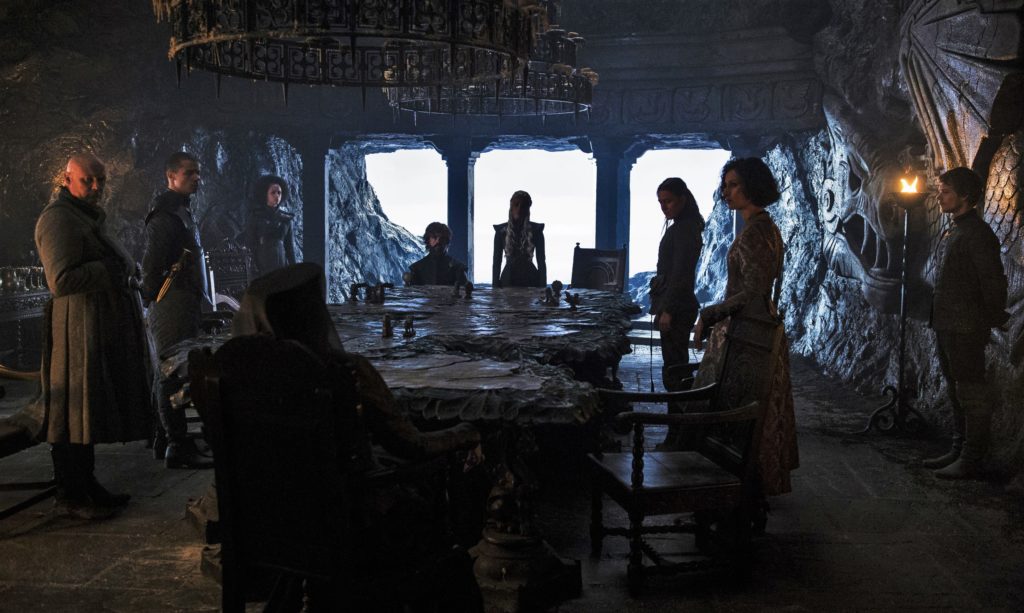
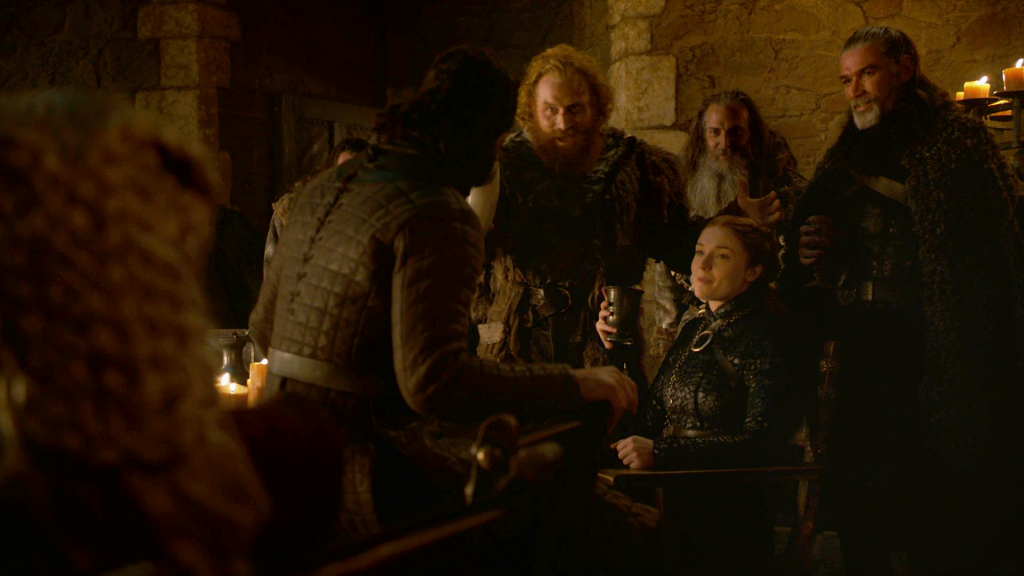
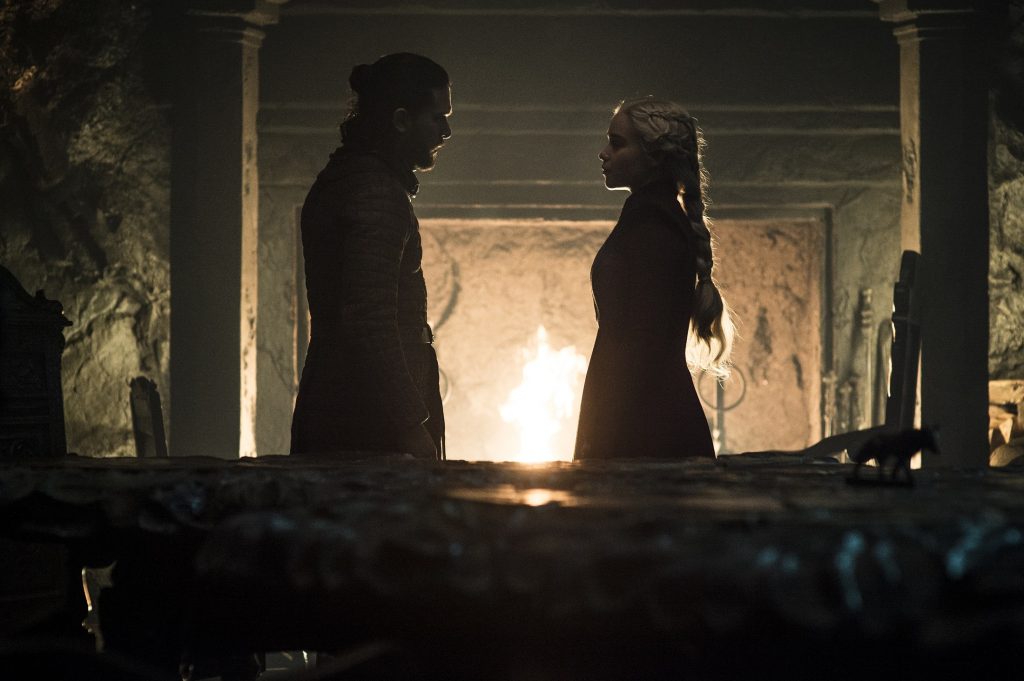

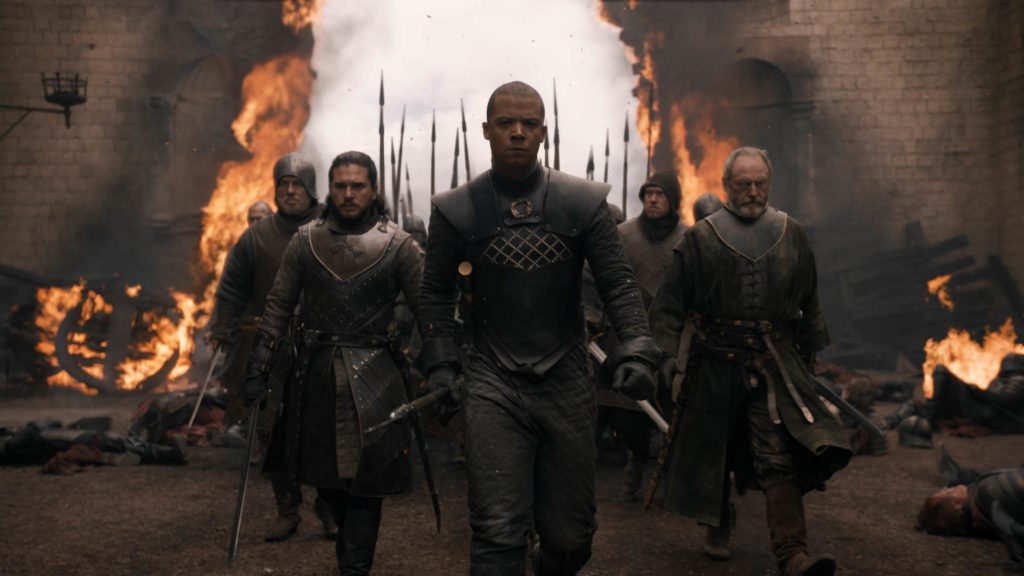
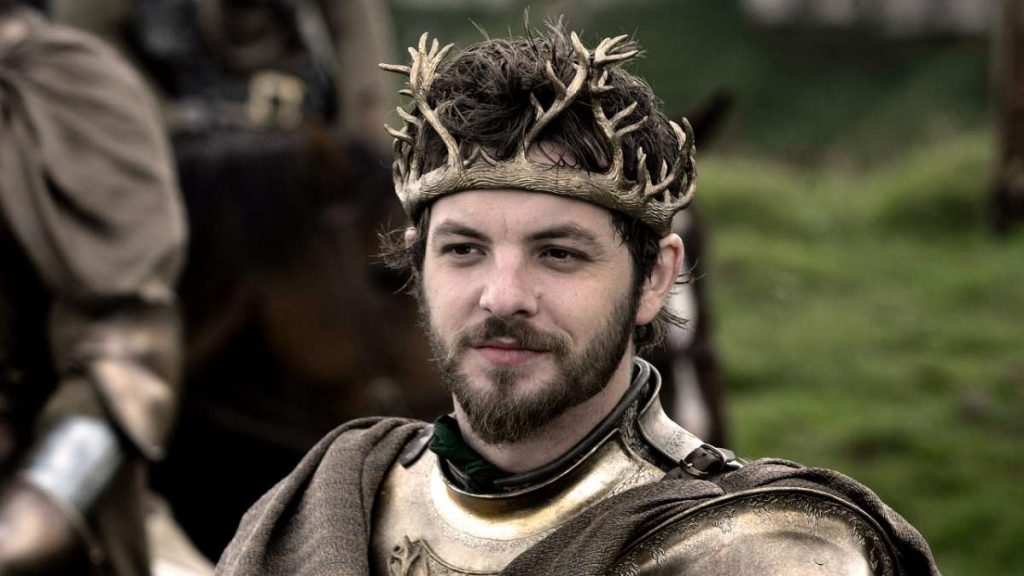
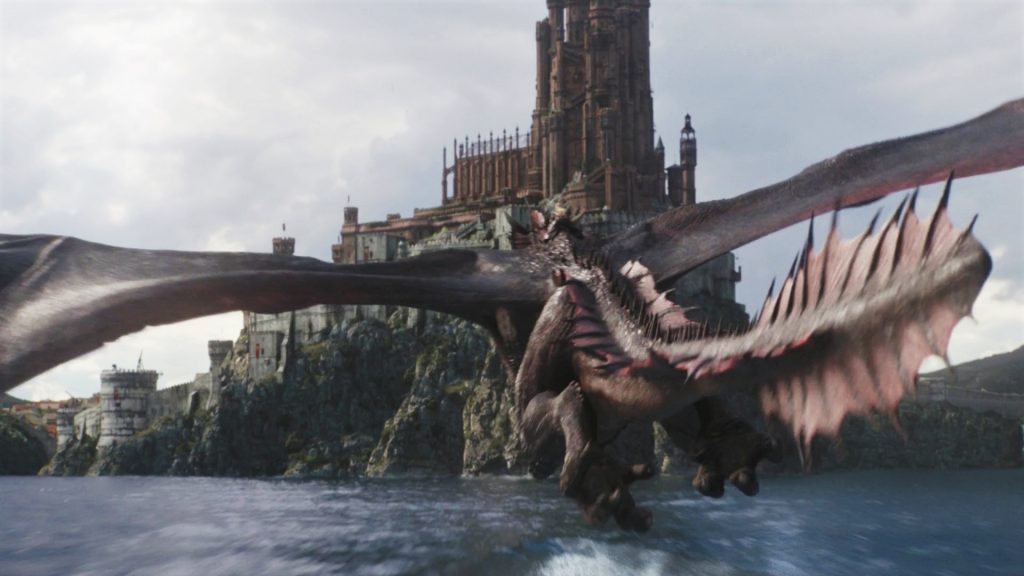
No comments:
Post a Comment